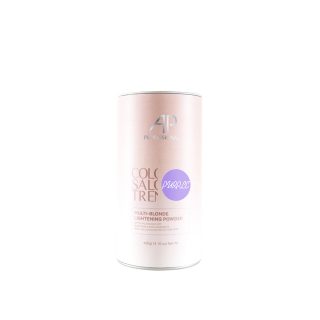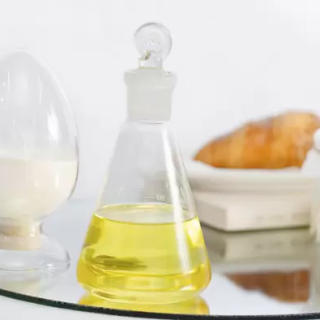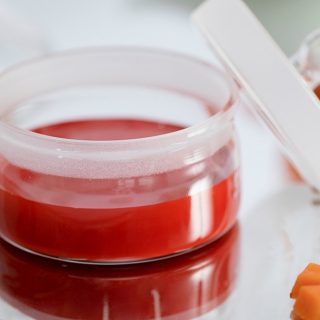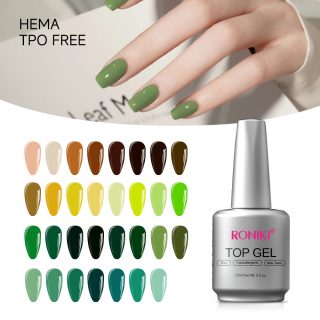Urolithin A CAS No.:1143-70-0
Molecular Formula: C13H8O4
Molecular Weight: 228.2 g/mol
IUPAC Name: 3,8-dihydroxy-6H-benzo[cd]pyran-6-one
CAS Number: 1143-70-0
Background and Source
Urolithin A is a metabolite produced by the gut microbiota after the consumption of ellagic acid or ellagitannins, which are found in pomegranate, strawberries, raspberries, blackberries, and walnuts. Once ingested, ellagic acid is metabolized by gut bacteria into Urolithin A, which is then absorbed into the bloodstream and can exert various health benefits.
Not all individuals produce Urolithin A efficiently, as this process depends heavily on the composition of the gut microbiota, which can vary from person to person. This has led to research into how dietary intake and microbiota composition influence the synthesis and effectiveness of Urolithin A in humans.
Synthesis of Urolithin A
Urolithin A can be synthesized through two main pathways: biosynthesis from ellagic acid and chemical synthesis.
-
Biosynthesis from Ellagic Acid:
Urolithin A is primarily produced through microbial metabolism in the gut. Ellagic acid undergoes hydrolysis by certain bacteria (e.g., Lactobacillus, Bifidobacterium) to form urolithin metabolites, with Urolithin A being one of the main products. This process involves the cleavage of ellagic acid into simpler phenolic compounds, which are further modified into Urolithin A.
-
Chemical Synthesis:
Urolithin A can also be synthesized in the laboratory through organic chemical reactions. The synthesis typically starts from simple aromatic compounds, which undergo hydroxylation and other transformations to form the final structure. This method is useful for producing Urolithin A in large quantities for research and commercial purposes.
Function and Biological Activity
Urolithin A has been extensively studied for its bioactive properties, many of which are linked to its antioxidant and anti-inflammatory effects. Some key functions include:
-
Antioxidant Activity:
Urolithin A exhibits significant antioxidant activity, protecting cells from oxidative damage by neutralizing free radicals. This property makes it an attractive compound for combating oxidative stress-related diseases such as cardiovascular diseases, neurodegenerative disorders, and aging.
-
Anti-inflammatory Properties:
Urolithin A has been shown to reduce the levels of pro-inflammatory cytokines, which helps alleviate inflammation. This effect is beneficial in preventing chronic inflammatory conditions, including arthritis, cardiovascular diseases, and some metabolic disorders.
-
Mitochondrial Health and Autophagy Activation:
One of the most promising biological effects of Urolithin A is its ability to enhance mitochondrial health. Urolithin A has been found to activate autophagy, a cellular process that recycles damaged mitochondria, thereby improving mitochondrial function. This has implications in aging and muscle health, as mitochondrial dysfunction is associated with aging and muscle weakness.

Applications
Urolithin A is used in several industries, including:
-
Health and Wellness Supplements:
Due to its antioxidant, anti-inflammatory, and mitochondrial health-promoting properties, Urolithin A is incorporated into dietary supplements designed to promote healthy aging, improve muscle function, and support cellular health.
-
Cosmetics and Skin Care:
The anti-inflammatory and antioxidant properties of Urolithin A make it a valuable ingredient in skincare formulations aimed at reducing oxidative stress and inflammation, which are major contributors to skin aging. It is being used in creams and serums for its potential anti-aging benefits.
-
Pharmaceuticals:
Urolithin A' s ability to support mitochondrial function has caught the attention of pharmaceutical companies researching treatments for age-related diseases and conditions related to mitochondrial dysfunction, including Alzheimer's disease, Parkinson's disease, and other neurodegenerative disorders.
-
Sports Nutrition:
Urolithin A has shown potential in improving muscle endurance and reducing muscle weakness, making it a promising ingredient for sports nutrition products, particularly those targeting aging populations who suffer from muscle deterioration.
Conclusion
Urolithin A is a naturally occurring compound with significant therapeutic potential. Derived from ellagic acid through microbial metabolism, Urolithin A has demonstrated a wide range of biological activities, including antioxidant, anti-inflammatory, and mitochondrial health-promoting effects. With its promising applications in health supplements, pharmaceuticals, and cosmetics, Urolithin A is poised to become a key compound in promoting healthy aging and combating age-related diseases.
Further research into its biological effects, mechanisms of action, and clinical applications will likely continue to reveal new therapeutic opportunities, making Urolithin A an exciting area of study for the future of health and wellness.
Related products
-
Quick View
AP Anti-yellow Bleaching Powder (Purple) 400g
Contact UsWith bond enforcing technology, the hair lightens up to 9+ levels. Provides advanced neutralization and improved hair care results when used with AP Rich Developers.
-
Quick View
Antioxidant Arachidonic Acid for Skin
Contact UsOther Name: ARA INCI Name: ARACHIDONIC ACID Purity: ≥40% CAS Number: 506-32-1 Specification: 10g Molecular Formula:C20H32O2 Ingredient submission code:125935-00183-9248
-
Quick View
Whitening Beta-Carotene Supplement
Contact UsINCI Name: BETA-CAROTENE Purity: ≥96% CAS Number: 7235-40-7 Specification: 10g Molecular Formula:C11H19NO9
-
Quick View
RONIKI Custom Oem Private Label Hema Tpo Free Nail Uv Gel No Wipe Top Coat
Contact UsNail Top Coat is a special coating used for nail art. It is usually a clear polish that is applied to the surface of the nails to add shine.












Reviews
There are no reviews yet.